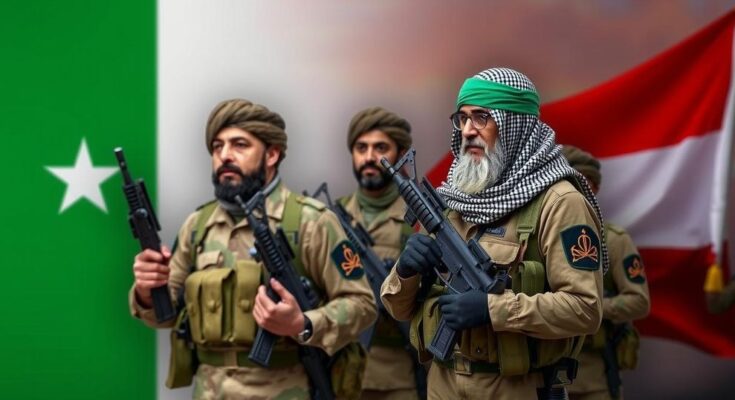A recent U.N. report indicates that Iran’s support has transformed Yemen’s Houthi rebels into a formidable military entity. The report highlights their increased operations in maritime areas, involvement in the conflict linked to Gaza, and recruitment of children into their ranks, marking a significant shift from a localized group to a player in international military affairs.
According to a recent report by U.N. experts, Yemen’s Houthi rebels have evolved from a locally limited armed group into a significant military force due to comprehensive support from Iran and various allied organizations. This transformation has been accentuated by the ongoing conflict in Gaza, as the Houthis strive to strengthen their influence within Iran’s “Axis of Resistance” while attempting to elevate their regional status. The report highlights a marked increase in Houthi naval activities, with indiscriminate attacks on maritime vessels in the Red Sea and Gulf of Aden that have disrupted global shipping routes. Notably, the rebels used a previously undisclosed ballistic missile, the Hatem-2, as part of their offensive actions. The report, which spans 537 pages, elaborates on the Houthis’ escalating capabilities reflecting an increase in their fighter count from 30,000 in 2015 to an estimated 350,000 presently. U.N. experts attribute this significant growth to extensive military training and material support provided by Iran’s Quds Force, Hezbollah, and various Iraqi military specialists. The Houthis have been involved in an ongoing civil war against Yemen’s internationally recognized government since 2014 post their takeover of the capital city, Sanaa. As negotiations for peace stagnated following recent escalations, the transformation of the Houthis into a robust military organization continues to heighten tensions within the region.
The ongoing conflict in Yemen has prompted multiple regional and international actors to intervene, leading to a complex war that has roots in local and regional power struggles. Since 2014, the Houthis, who initially emerged as a tribal group, have become enmeshed in a broader geopolitical conflict, receiving support from Iran, amidst attempts by the United States and Saudi-led coalitions to curb their influence. The international community remains concerned about the developments in Yemen, particularly as U.N. experts continue to monitor military actions and humanitarian implications, highlighting the growing power of the Houthis due to foreign assistance.
In summary, the recent U.N. report underscores the significant military transformation of Yemen’s Houthi rebels, driven largely by Iranian support and tactical collaborations with groups such as Hezbollah and al-Qaida affiliates. The Houthis have demonstrated increased operational capabilities through maritime assaults and enhancement of their military hardware, raising alarms about the implications for regional stability. The conflict, now regarded as an international crisis, demands urgent attention as child recruitment and humanitarian issues intensify amid the ongoing warfare.
Original Source: apnews.com




